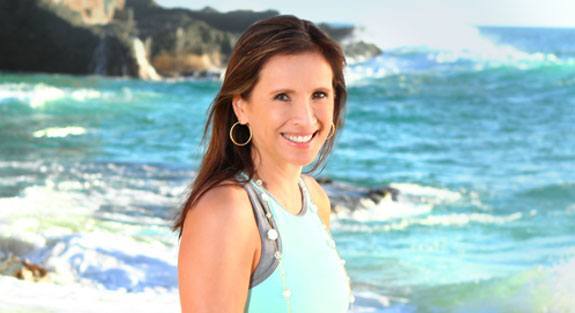
Occasionally changes occur after breast implant surgery that requires surgical revision. These changes can be due to a failed implant, natural changes to the breast tissue, or natural changes resulting from childbirth and breastfeeding. More commonly, there are issues with the previous implant surgery either in accumulation of scar tissue or improper choice of surgical techniques. Other reasons Newport Beach patients come to Dr. Lavinia K. Chong for Breast Revision (Implant Explantation) include:
- Implant failure;
- Patient dissatisfaction with implant size, style or type (saline vs silicone);
- Capsular contracture;
- Implant malposition (bottoming out, symmastia, lateralization);
- Hyperanimation deformity (excessive breast movement upon pectoralis muscle movement);
- Recurrent laxity or sagginess that was not previously corrected with a breast lift at the time of augmentation;
- Patients who don’t want implants anymore
Indications for breast implant revision
Bottoming-out or a “stretch (nipple to fold) deformity is a complication when the major volume of one or both of the breast implants slips below the inframammary fold, which is where the breast meets the rib cage. Characteristics include:
- Increased breast volume in the lower pole. Decreased upper pole volume;
- “Stargazing” nipples, which may not be contained by bras or bathing suits;
- Increased distance between the nipple and IMC;
- Visibility of the scar, which should be concealed within the IMC;
- Possible “double bubble”
Causes of bottoming out:
- Underdevelopment of the IMC is an anatomic variant where the fold is underdefined. In this situation, the force of the pectoralis major muscle forces the implant down and out, thereby expanding the pocket below the base;
- The breast implant is too big, wide, or heavy to be contained by the breast skin base;
- The breast implant pocket was made too big by over-dissection of the normal fascial attachments;
Lateralization occurs when the implant dislocates off the chest wall. Findings include:
- Loss of medial cleavage lines;
- Expansion of the implant pocket, resulting in excess volume under the armpit;
- Loss of upper pole fullness;
- East-West nipples, when lying down
Causes of lateralization:
- Wide, standard profile saline breast implants;
- Sub-pectoral plane;
- Flaccid, excessive breast tissue & implant mismatch
Waterfall deformity is defined by the natural breast tissue settling at a lower level than the breast implant. It manifests with:
- The upper pole is composed of the breast implant and breast tissue;
- “Hanging” lower breast flap, unrelated to the breast implant
Causes of “waterfall”:
- Weight gain;
- pregnancy resulting in overgrowth of native breast tissue;
- Capsular contracture
- The breast feels painful, firmer;
- The breast shape may appear narrower, smaller compared to the unaffected side;
- The breast may seem to “rise” upwards;
- The nipple position may appear to descend
Causes of capsular contracture:
- Mastitis;
- Implant failure;
- Idiopathic (unknown);
- Infection
How Do I Know if My Breast Implants are Bottoming Out?
One possible complication associated with breast augmentation surgery is “bottoming out.” If you are experiencing bottoming out, you will notice that one or both of your breast implants has slipped below your natural breast crease. The breast crease (also known as the inframammary fold), is that portion of your chest where the lower boundary (or bottom portion) of your breast meets the rest of your body. Newport Beach women who experience bottoming out may begin to see:
- Sagging or less fullness in the upper breast pole;
- Nipples and areolas may tilt upward;
- The scar from an inframammary incision may become visibly more noticeable on the lower breast mound instead of being hidden in the breast crease.
Symmastia
Symmastia is a condition when the breasts are too close together and can occur naturally (congenital) or following breast augmentation, using an implant, which is too wide for the patient’s chest. Features include:
- Loss of medial (inner) cleavage lines;
- one continuous “uniboob;
- Unnaturally close appearance;
- Skin lifting off the sternum (breastbone);
- Difficulty with what to wear;
- Pain or discomfort is rare
The “thong” bra which separates the breasts is a non-surgical, temporary, unsatisfactory result. Surgery is the gold standard, during which time the borders of the breast are restored and maintained with the use of DuraSorb, a biodegradable mesh and exchange for a narrower base implant.
These are challenging cases and require technical expertise as well as sensitivity in guiding the patient through the postop convalescence; all of which Dr. Chong and her team are well equipped to provide . Thankfully, patients generally report that pain is less than their primary augmentation. Postop protocols require the use of the thong bra and avoidance of upper body exercises for a minimum 90days.
Breast Revision and Breast Implant Exchange

Newport Beach women may need their breast implants exchanged due to a breast implant rupture or capsular contracture. Or they may simply be looking to change the size or shape of their breasts (switching out to a smaller or larger breast implant). From the selection process of saline vs. silicone and round vs. shaped, Dr. Chong will explain how changes in breast implant profile can help you achieve your goal. Not sure how to explain your goal? Bring in photos! Reviewing photos of looks you like will help you communicate your needs and expectations (size, cleavage, upper pole fullness). Whatever the case may be, Dr. Lavinia K. Chong has the female perspective and surgical knowledge to guide you through the process of an implant explanation and a breast implant exchange.
Newport Beach women who have issues with their breast implants are good candidates if they have any of the above issues with their implants, are in good overall health, and do not smoke.
Why Choose Dr. Chong?*
There are many reasons why women will choose revision of their breast implants or prior breast reduction/lifts. With more than 20 years of experience, Lavinia K. Chong, MD, is a breast revision specialist and problem solver. During the course of a consultation, she encourages patients to express their unique dissatisfaction so that a plan of care can be jointly formulated. Some common observations include:
- Excess or insufficient volume;
- Implant malposition;
- Asymmetry;
- Implant failure;
- Recurrent droopiness;
- Incompatibility with lifestyle;
- Unwillingness to accept the possibility of future aesthetic breast surgery
Breast techniques can include:
- Implant exchange (saline/silicone, style change, volume addition or reduction);
- Implant removal;
- Implant site change (submuscular to subglandular);
- Capsulectomy with or without application of Strattice;
- Repair of symmastia;
- Breast lift with and without application of DuraSorb mesh
The exact combination of procedures is predicated on a comprehensive understanding of the patient’s health, aesthetics, lifestyle, and genetics.
What Is Breast Revision Surgery?
Breast revision surgery, or implant explanation with possible implantation afterward, is usually performed on an outpatient basis utilizing Monitored Anesthesia Care (MAC). Planning the surgical approach is based on what needs to be revised so procedures can be performed either through previous scars or breast lift (mastopexy) scars.
Mastopexy or breast lift involves:
a) conserving the blood and nerve supply to the nipple-areolar complex and migrating it to a higher position;
b) reshaping the remaining skin and breast tissue so that there is a secure “hand in glove” fit for the implant;
c) preserving sensitivity to the nipple-areolar complex for future breastfeeding needs.
Occasionally breast revision requires “restoring normal anatomical borders” of the breast and may include redefining the space in which the implant is placed, using either permanent internal sutures and/or ADMs (acellular cadaveric dermal matrices), which serve as “internal bras” to provide support against implants moving “down and out”. ADM capsulorrhaphy is a technically demanding procedure, which was originally pioneered in breast reconstruction but has become increasingly popular in cosmetic breast revision. It is a more extensive operation but enjoys high satisfaction because of the low rate of recurrent implant malposition and capsular contracture while not interfering with mammographic screening. Advances in techniques and technologies now provide us the options of Suture Capsulorrhaphy and Capsulorrhaphy utilizing Strattice and DuraSorb.
Strategies for Breast Revision
Making the correct preop diagnosis is critical for choosing an adequate surgical plan. The ultimate goal is to provide a soft, mobile breast, which has the appropriate “borders” and conforms to the patient’s aesthetics and lifestyle. Silicone gel breast implants are screened for rupture with a complimentary Clarius Ultrasound so that warranty cases can be initiated prior to surgery. All breast revisional procedures are performed in the AAAA-licensed surgical suite, under monitored anesthesia care. Your comfort and safety will be optimized.
Bottoming out reflects overexpansion of the inferior border, which can be restored by:
- Redefine the breast implant pocket, either with sutures or biodegradable mesh;
- Exchange the current breast implants for implants that have an appropriate volume, width, or projection;
- Convert to another breast implant pocket
Lateralization or overexpansion of the outside border requires making the pocket smaller and may also be combined with a breast lift if the native breast skin envelope is also overexpanded.
- Redefine the breast implant pocket with biodegradable mesh;
- Exchange implant for one, which will provide a “hand-in-glove” fit;
- Mastopexy
Waterfall deformity requires the provision of a “hand-in-glove” fit:
- Mastopexy;
- Implant exchange, if implant failure is diagnosed;
- Capsulectomy
Capsular contracture is problematic as the chances for recurrence are two-fold higher than the general population.
-
- Total capsulectomy removes the entire fibroelastic membrane and the implant is exchanged;
- Strattice (porcine acellular dermal matrix) may be suggested;
- Drains are mandatory;
- All capsular specimens are sent for Pathology;
A comprehensive consultation and preop visit will inform the patient of all risks, protocols, and expected recovery time.
Gummy Bear Silicone Gel Breast Implants
The term “gummy bear” silicone gel breast implant is the newest, 6th generation and originates from the technological innovation by which breast implant manufacturers have increased the cross-links between the silicone molecules, resulting in stronger external shells and greater cohesivity of the internal gel.
Increased “gumminess” has benefits:
- Form stability reduces the chance of palpable and visible wrinkling;
- A new portfolio of re-engineered implants has improved projection and upper pole fullness, which yield greater options;
- Safety. Cohesivity reduces the chance of silicone spread in the event of implant failure.
The female breast symbolizes so much: femininity, sexuality, and youth, but age, weight gain, loss, and pregnancy/lactation conspire to change the shape and position in unpredictable ways. If you are dissatisfied with the results of a prior breast augmentation, gummy bear silicone gel implants may be a good alternative to saline or earlier-generation silicone implants. Just like the story of the three bears, this implant option may be “just right” for you.
What Is Breast Revision Recovery Like?
Following surgery, you will be sore and swollen for several days, but any swelling should diminish within ten days to two weeks, depending on the extent of the implant explanation surgery. You should be able to resume your normal activities within a few weeks.
Dr. Chong is deeply committed to providing her Newport Beach patients with optimal results and personalized care. She will be happy to consult with you personally to help you determine if a Breast Revision procedure is your best option. Before and After revisional breast photos are available to view in-office during your consultation.
Implant Exchange FAQS
- Will it hurt as bad as the first time?
- Everything depends on the surgical plan, however generally speaking the chest wall muscles (pectorals) don’t have to be re-elevated or stretched.
- If it hasn’t been 10 years, should I still replace them?
- If an implant hasn’t leaked, become problematic because of hardening, malposition, size, palpable wrinkles or folds, and both size & nipple position is satisfactory, then there is no need to replace your implants. Rupture of a saline implant is unequivocal as the device collapses; however the phenomenon of “silent rupture” of silicone gel implants requires a specialized x-Ray or MRI for confirmation. I believe that the notion of revising breast implants every 10 years is related to the fact that corporate (implant manufacturer) basic financial support for revisional surgery expires 10 years post-op. The inclusion criterion for financial assistance depends on the manufacturer, product type & year in which it was placed, so it’s critical to keep your warranty information safe.
- What happens if your silicone implant is ruptured and the doctor doesn’t know before surgery?
- We always order “back-up” implants so any unanticipated contingency can be covered. If the implant is intact, the patient doesn’t incur any financial liability.
- Can you use the same incision?
- Of course but choice of the incision depends on the surgical strategy & aesthetic goals.
- Will I have drains?
- If the extent of capsular contracture is significant enough to warrant surgical excision, drains are inserted until their daily output is minimal. Current theories of the formation of capsular contracture blame the accumulation of blood around the implant and/or a low-grade inflammatory response. Drains address these concerns.
- What does it mean when my breasts are hard?
- Breasts can be perceived as hard because:
1. They haven’t dropped and fluffed yet;
2. They are overfilled saline implants, which always appear hard and project a lot; or
3. The breast has elicited a “foreign body” reaction or capsular contracture around the implant. All women with implants develop a capsule around their implants, but it’s the extent of firming and distortion, which eventuates in another surgery to remove the scar and replace the implant.
- Breasts can be perceived as hard because:
- Will I get any financial assistance from the old implant company?
- It depends on which warranty you received with your current implants. We can help you find out when you come in for your consultation.
- Can implant exchange be done at any age?
- All Newport Beach patients are screened to ensure that they are suitable surgical candidates. Some patients may need some of their health issues optimized before surgery, but we are content to report that we are taking care of healthy seniors, who also enjoy great outcomes. Everyone deserves to be the best they can, at every age.
- How have silicone implants changed over the years?
- From the manufacturing perspective:
1. Better engineering in terms of stronger external envelopes & more cohesive (sticky) gel; and
2. The More imaginative design of profiles, including the new-comer, “gummy bear” gel implants.For Plastic Surgeons:
1. Ability to render a more complete informed consent, using long-term data on rates of CC (capsular contracture), deflation & secondary procedures;
2. Cooperation with FDA in tracking these devices, thereby increasing the fund of knowledge;
3. Basic science research on associated topics like causes of CC; and
4. Availability of tissue engineering options for enhancing implant longevity and outcomes.
- From the manufacturing perspective:
- Do the rates of capsular contracture increase with an exchange?
- If you have never had a capsular contracture (CC) before, chances are slim you will get a CC the next time. If you have had a CC before, the rate is 2x higher.
Implant Explantation FAQ
- What will my breasts look like after? Will they be smaller than the size they were before the implants?
- Breasts will appear smaller & slightly relaxed. The volume should be the same as you had, or slightly more than was present pre-op. Women are amazed how their breasts could grow, however the implant exerts a tissue expansion effect & a woman’s body is under continual development.
- Will I need a lift?
- Not necessarily. Factors such as nipple position, skin laxity, size of the implant & desired outcome should be considered. Many women choose to “stage” implant removal & breast lift. Once the breast skin is “off-loaded” from the weight of an implant, it may contract to a satisfactory form.
- What is the downtime?
- Newport Beach patients are pleasantly surprised how little pain they experience. It is advisable to avoid heavy exercise involving the upper body for 2-4 weeks, in order to avoid a seroma, or a collection of fluid in the space previously occupied by the implant.
- Where is the incision?
- I recommend the IMF (fold where breasts meet abdomen) because it is well concealed, provides the surgeon with excellent access & is least associated with alterations in nipple sensation and lactation potential.
- Can you go through the same incision?
- Yes, however re-entry through the peri-areolar scar can occasionally result in a tethered or depressed scar, once the implant has been removed.
- What are my options if I want smaller breasts?
- Since 2012, I have taken care of 100 explant patients; approximately 2% have opted to re-implement but with smaller volume. Elective surgery is just that, Newport Beach women can always choose to “downsize”.
- Do you always have a capsule?
- All breast implants elicit a foreign body reaction or capsule, which is a fibro elastic layer of scar around the implant. Not all capsules need to be surgically removed, especially if they are not symptomatic, i.e. causing pain & deformation of the breast. Capsules are “graded” according to the Baker scale, 1-4; excision of the capsule is recommended for higher grades.
- Do people ever decide to put implants back in?
- Yes, although in my experience, the explantation Newport Beach patients are highly motivated and have researched extensively before consulting. The decision to choose or opt out should be freely made after approving the risk-benefit ratio & with a strong knowledge of your individual values, aesthetic ideals & priorities.
- Will it improve my health?
- Conditionally yes but explantation is fundamentally a question of a woman’s ability to tolerate risk. Women who never “made friends” with their implants because they were too big, were “not me”, made me feel self-conscious, etc. will be psychologically rewarded. Peri menopausal weight gain may cause breast development, which may make women feel matronly and impede exercise ability. Concerns about mammographic surveillance, as well as suitability for eligibility for surgical revisions are also “drivers” for women seeking to optimize their health. The link between silicone and the subsequent development of auto-immune disease has been definitively excluded. Regrettably, once established autoimmune disease doesn’t reverse with explantation.
- If I don’t like my new implants, how soon after can I get them taken out?
- We encourage Newport Beach patients not to “buy in haste, repent at leisure”. The decision to proceed with any surgery should be carefully weighed. Nobody wants “buyer’s remorse” so pre-op sizing is extremely helpful in understanding a patient’s aesthetic goals. If a patient from another practice desires explantation, we request they discuss their dissatisfaction with the implanting surgeon & wait a minimum 90 days, to fully evaluate their results.
Dr. Chong will be happy to help you achieve your goals and address your needs for breast implant explantation. Contact our office in Newport Beach to schedule your breast revision consultation at (949) 644-1400.



